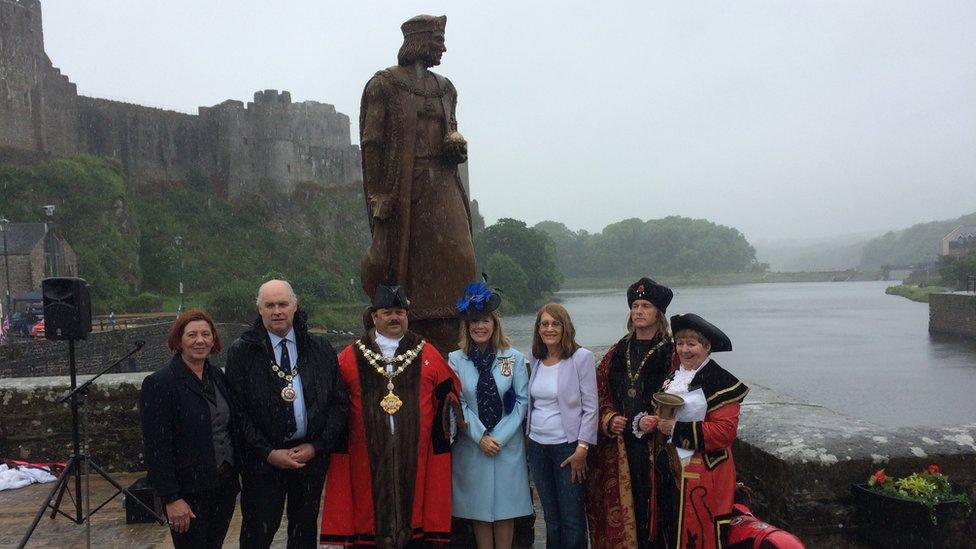History fans find Collyweston royal palace 'against all odds'
- Published
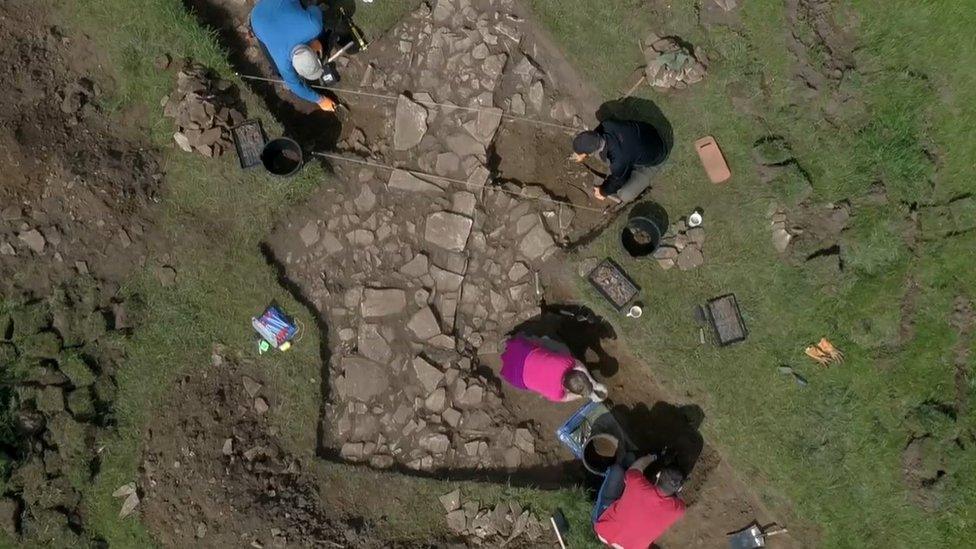
Ground-penetrating radar helped the team find parts of Collyweston Palace
A group of history enthusiasts have found the location of a 15th Century Tudor palace "against all odds" - after a five-year search.
The project to find Collyweston Palace in Northamptonshire was started by members of Collyweston Historical and Preservation Society (Chaps) in 2018.
It belonged to Henry VII's mother, Lady Margaret Beaufort, who died in 1509.
The society will carry out further excavations next year with the help of experts at the University of York.
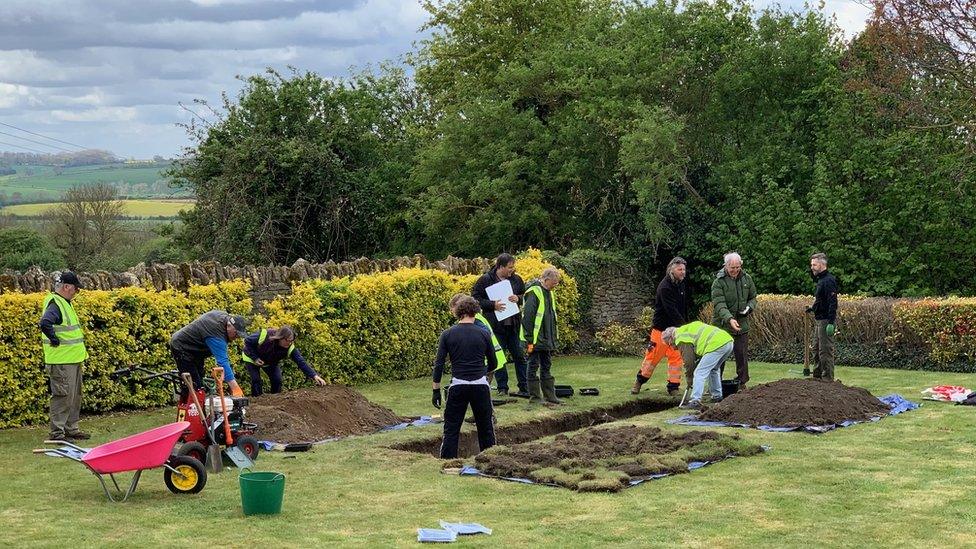
Amateur and professional archaeologists digging gardens in Collyweston, Northamptonshire, in 2019
Chris Close, a Chaps member and part of the dig, said: "We're just a bunch of amateurs really, with no money, no plans, just a lot of enthusiasm and against all the odds we have unearthed this.
"Although we are confident we can clearly see the palace, in the next phase we want to find out more about the people who used it and how they used it."
The amateur archaeologists have discovered buried walls and foundations of the palace which fell into disrepair by 1650 when it was bought by the Dutch Tryon family who built another house on the site.
The palace was recorded by Historic England,, external but the only visible evidence for its existence until the latest dig were related fish ponds, garden terraces and a tithe barn, which has been turned into a house.
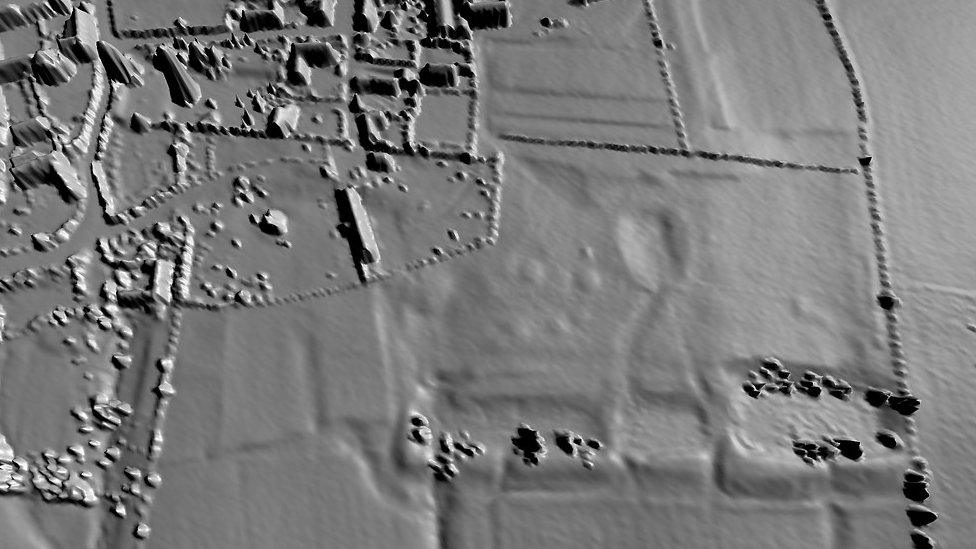
Lidar - or light-detecting radar - showing a series of ornamental ponds, terraced gardens and drainage channels
The dig, which followed a number of geophysical surveys, had required the co-operation of several landowners, with some giving permission for excavations in their gardens.
Ground-penetrating radar (GPR) scans were used to help reveal palace walls, uncovered for the first time earlier this year.
After the team of amateur and professional archaeologists dug up a garden to find the remnants of the palace, experts from the University of York verified stone mouldings in the hall's yard in August.
The team spent some £14,000 on the project, raised in grants. Mr Close said projects like this could sometimes cost almost five times as much, if not more.
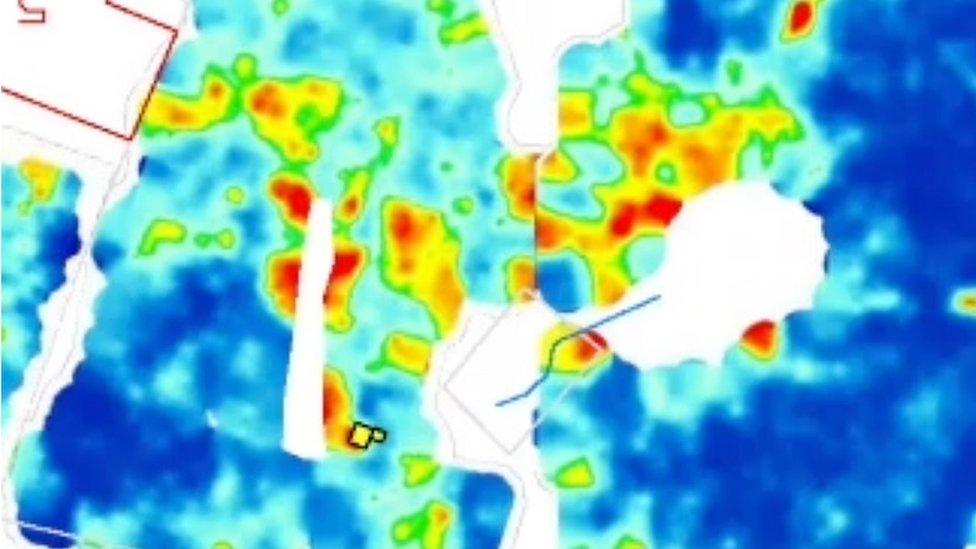
GPR data showing lineal features across a complex of buildings
Collyweston Palace was visited or owned by a range of famous royals, including Henry VIII and Elizabeth I.
Lady Margaret was mother to Henry VII, and grandmother to his son Henry VIII.
"As far as we can tell, the last royal to stay at Collyweston was Elizabeth I who is recorded as holding court here on 3 August 1566," said Chaps.
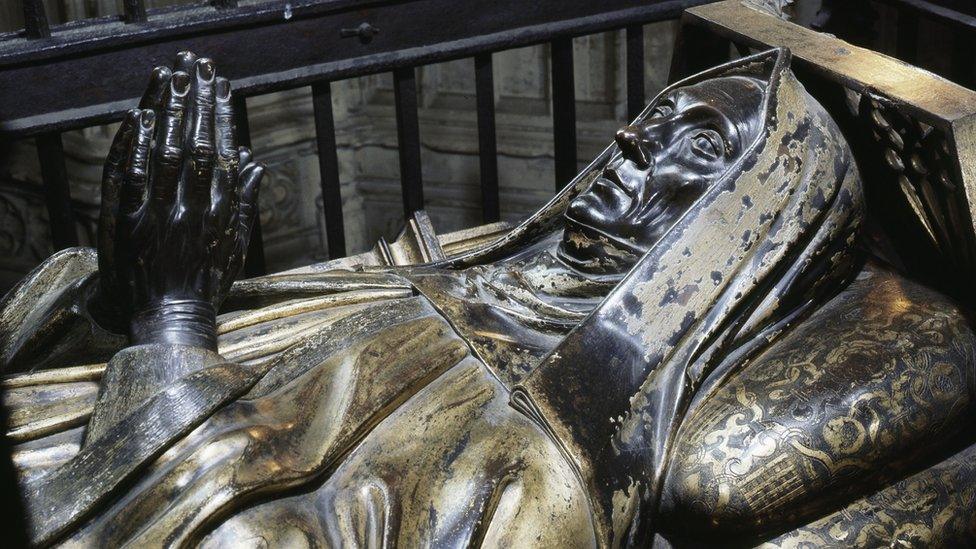
Margaret Beaufort (1443-1509) refounded Christ's College, Cambridge, as well as giving gifts to churches and monasteries
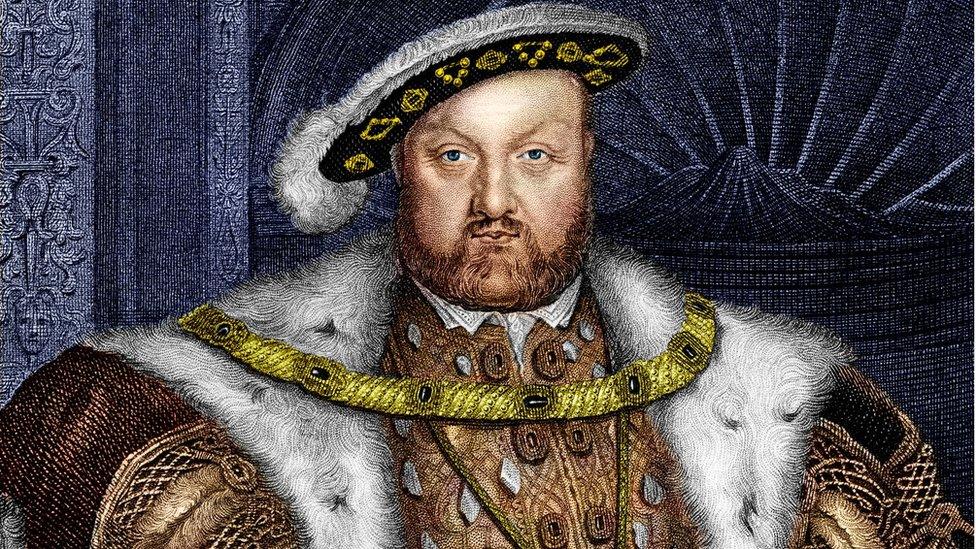
Henry VIII bequeathed Collyweston Palace to his wife - Anne Boleyn - who was later beheaded
Chaps said further investigations of the ground would be carried out using penetrating radar to try to establish what each building was used for.
"We will also be able to obtain other useful information that will enable us to work out the architectural style along with other important dating evidence," the society said.
These works would continue into 2024 with plans to report back by the September.
An exhibition of the finds is currently on display at Lady Margaret's Chapel in Collyweston, and more items were planned to be added, said Mr Close.
A 3D mock-up of the palace would be created with the help of the University of York once phase three of the dig was completed.
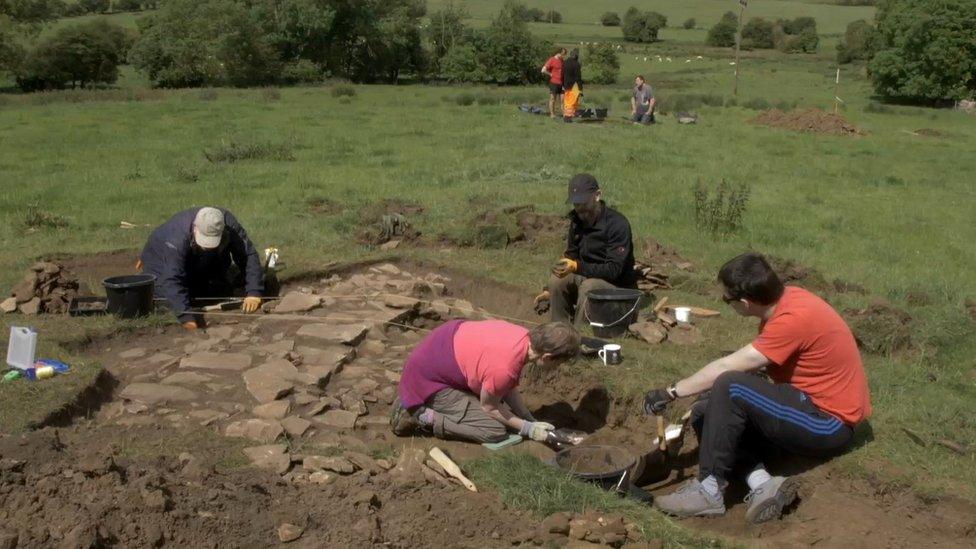
Members of Chaps will continue working on site next year and will be helped by researchers from the University of York

Follow East of England news on Facebook, external, Instagram, external and Twitter, external. Got a story? Email eastofenglandnews@bbc.co.uk, external or WhatsApp us on 0800 169 1830
Related topics
- Published7 May 2019
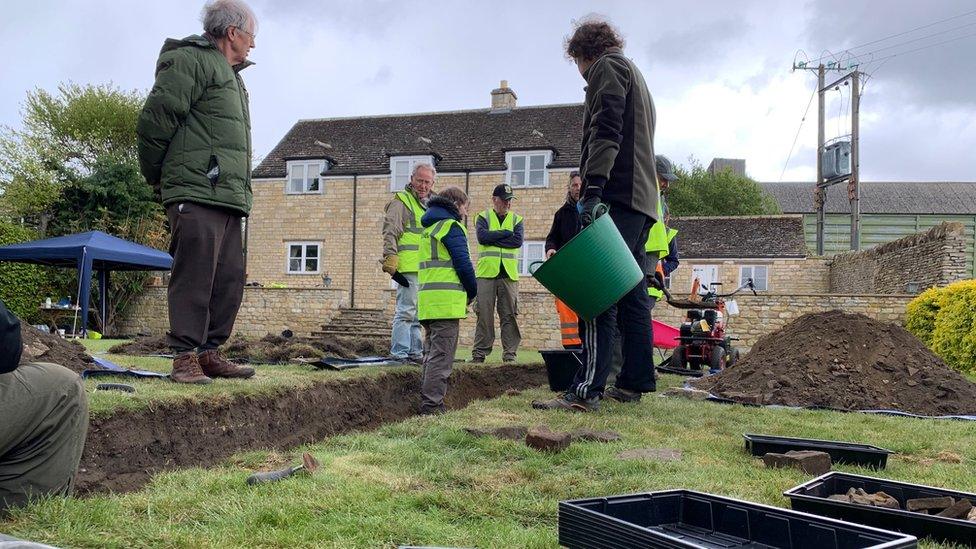
- Published12 February 2019
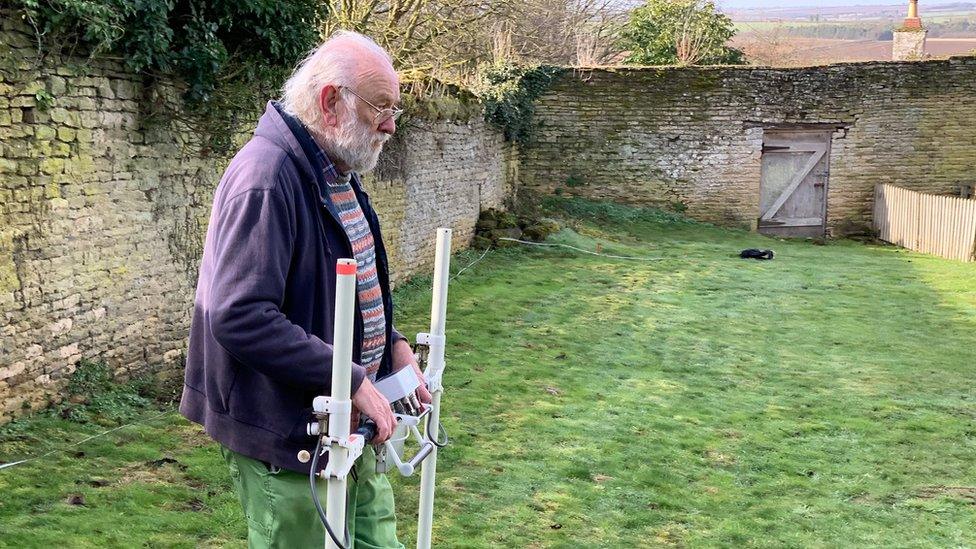
- Published10 June 2017
